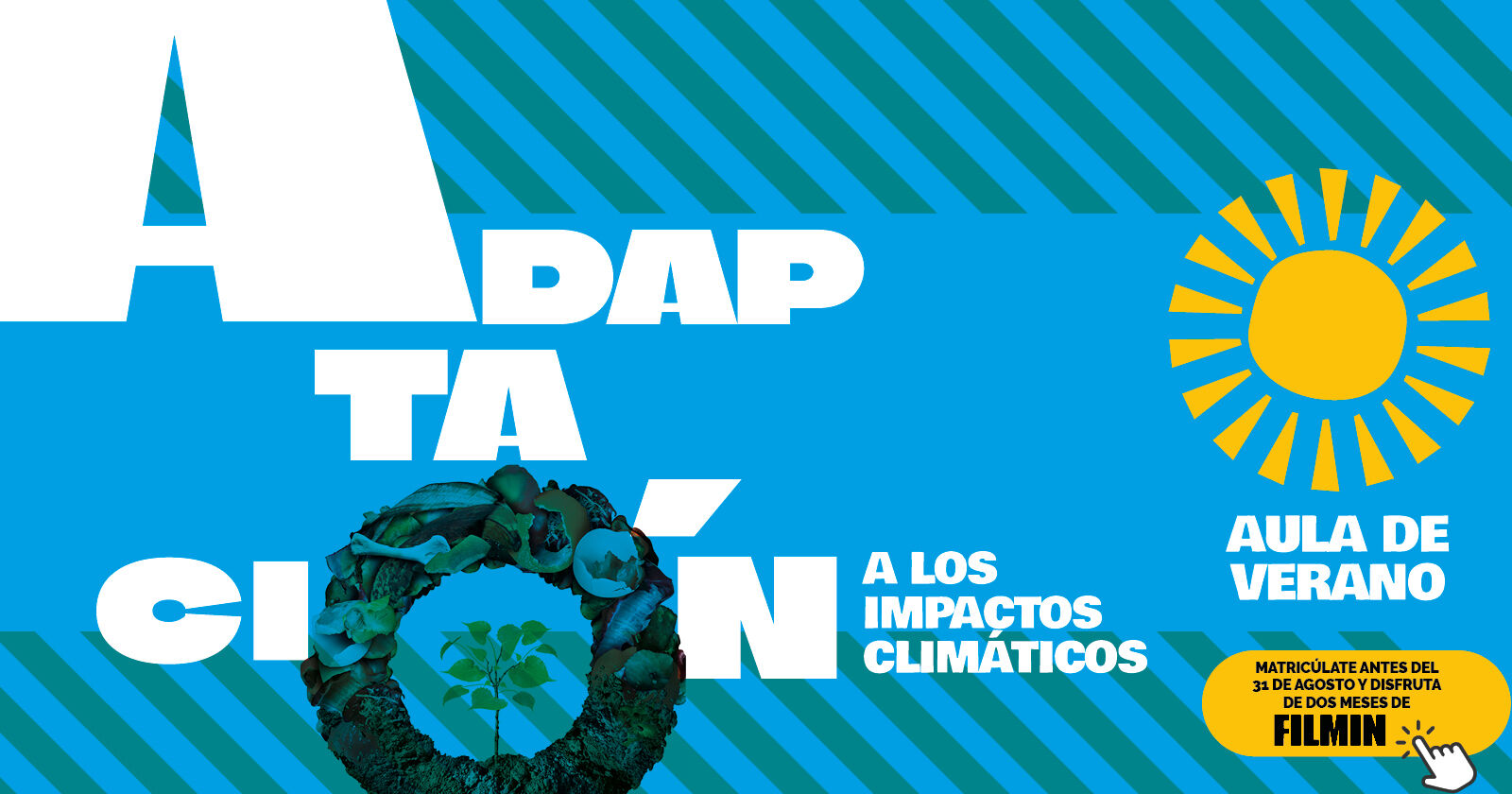The IPCC (Intergovernmental Panel on Climate Change) is holding elections from July 25 to 28 in Nairobi (Kenya). It will proceed to elect a new Bureau and the Bureau of the Task Force on National Greenhouse Gas Inventories (TFI).
The chair of the IPCC will be elected on July 26. Four people are running for the position. Climática has prepared a common questionnaire of 10 questions to understand the proposals of the four candidates.
James Ferguson Skea, known as Jim Skea, is Professor of Sustainable Energy at Imperial College London and a researcher on energy, climate change and technological innovation. About to turn 70 years old (with 40 of those years dedicated to climatology), the Scottish scientist aspires to lead the IPCC during the Seventh Assessment Cycle following his nomination by the UK Government.
Skea’s association with the IPCC began shortly after its creation in the 1990s. Since 2008 he has held senior positions in the organization, first as vice-chair of Working Group III, and from 2015 to the present day as co-chair of Working Group III, which focuses on climate change mitigation.
Over the years, he has co-led the landmark 1.5°C special report on Global Warming, the Climate Change and Land report, the 2022 Report on Climate Change Mitigation, and co-authored the Sixth Assessment Cycle Synthesis Report, the most recent IPCC report.
Outside of the UN, Skea is chair of Scotland’s Just Transition Commission and was a founding member of the UK Committee on Climate Change. He previously held senior positions at various institutions, including the UK Energy Research Centre, the Energy Institute and the Institute for Policy Studies, among others.
Jim Skea has twice been awarded the Order of the British Empire for his work on sustainable transport and sustainable energy. His goal now is to become the next chair of the largest panel of climate change specialists.
Why have you decided to run in these elections?
For all of its challenges and frustrations, I just can’t get enough of IPCC! I’ve been in IPCC’s engine room as a Working Group Co-Chair for almost eight years now. That’s where the hard work gets done – scoping reports, selecting authors, managing report production and chairing approval sessions with governments. From that position, I could see the possibilities at the next level: influencing the shape of a whole IPCC cycle; representing IPCC in the wider world; injecting IPCC findings into policy processes. Some scientists get their kicks from the latest article in Nature. I get mine from seeing scientific evidence informing and being picked up by decision makers. What better job is there in the climate world?
Why should you be the next person to lead the IPCC?
I think I understand IPCC from bottom to top, in that order. Earlier in my career, I was a Coordinating Lead Author, Lead Author and Review Editor, starting in WG II in impacts and adaptation – in contrast to where I am now, in mitigation. I’ve run the process at the Working Group level, where the business of producing reports is executed. IPCC is a science-policy interface body, and I have strong links with policy both internationally through the UNFCCC and nationally through my membership on the UK’s Committee on Climate Change. I chair a Just Transition Commission back home, which constantly reminds me that climate action is about real people and their lives and is not just a scientific abstraction. I know how to get things done, having been involved in the development of IPCC’s Conflict of Interest policy and its procedures on publishing and translations. And finally, I do have a vision as well as a means for making things happen.
If elected the next IPCC chair, what actions would you like to implement?
First, let’s be modest about what a Chair can do! The “I” in IPCC stands for “intergovernmental,” and the Panel is supreme. The IPCC engine room is at the Working Group level. What the Chair can do is set agendas, exercise a convening power, cajole and persuade. And these are actually substantial powers.
What do you think the role of the IPCC should be in this and the following decades?
The challenges for IPCC in the next cycle are to remain policy-relevant by producing a set of timely reports that can inform, for example, the second Global Stocktake under the Paris Agreement; progressing the agenda on equality, diversity and inclusion; and being scientifically joined up, both across the IPCC Working Groups and with other UN environmental assessments. The Chair is in a leading position to build consensus across these issues. IPCC faces many challenges: we have an exponentially expanding climate literature, demanding processes and procedures that place heavy demands on Bureau members, Technical Support Units and authors and ever rising expectations from policymakers. This won’t all get solved in the 7th Cycle. We need to put in place a process to make IPCC fit for purpose beyond the 7th cycle, while meeting immediate demands in the next five years or so.
The Working Group III report published last year had among its authors two employees of oil companies and a climate change denier. Do you think it is right that they are part of the IPCC reports? Could their inclusion affect the Panel’s credibility?
IPCC author teams are selected to reflect diverse backgrounds and sources of knowledge. Individual authors are selected for their scientific credentials. Creating diverse teams helps to address any issues of bias. All authors are subject to the Conflict of Interest policy. Interests, which everyone has, are declared, assessed and communicated to fellow authors. A scattering of authors from the business world has enhanced reports, in my view. And I see no evidence that this has undermined either the reports themselves or their reception in the policy world. The climate denier point refers, I think, to a very specific case. IPCC reports are wide in their scope and I don’t know of any individual who contributed to a section outside of their competence.
One of the main criticisms of the IPCC is the lack of gender and country diversity among its authors. Do you share this view? What do you think needs to change for the Panel to improve in both areas?
I agree it’s a problem. On gender it appears that we have reached a ceiling, with women accounting for about 30% of authorship and Bureau nominations from governments. When the Bureau selects authors, it can, and has, bumped that percentage up by a few points. But a job for the next Chair is to persuade governments and observers to bring a more balanced set of nominations. And change meeting culture with attention to working hours, for example, which would have huge implications for those with childcare responsibilities.
We have made big improvements in terms of regional diversity. For example, a majority of contributors to the Land Report came from developing countries. But there is room for improvement, especially in bringing forward younger scientists from developing countries – like giving them a role as chapter scientists. We also need to pay more attention to balance within regions to ensure that a small number of countries are not dominant.
Equality within meetings is an issue for both women and authors from developing country. Too often still a small number of voices can dominate discussions. This needs to be addressed on several fronts: training in the first and subsequent author meetings, to ensure inclusiveness and respect; attention to the timing and conduct of meetings so that those with caring responsibilities are not disenfranchised; giving thought to the use of in-person, virtual or hybrid meetings; giving prominence to the IPCC’s gender policy.
There is no easy answer to the equality and diversity question. We need to break the problem down into bits and proceed on multiple fronts.
Another criticism that the IPCC often receives is that its reports use watered-down language in the Summaries for Policymakers (SPMs) because they result from negotiation with countries. Do you see this as an advantage or a disadvantage?
It’s neither a plus nor a minus in my view. The uniqueness and power of IPCC reports stems from the fact that they’ve been agreed on, by consensus, among governments and scientists. That means there can be no going back on the conclusions of IPCC reports. From a governmental point of view, that’s critical when it comes to climate negotiations. It is also essential that the chairs of IPCC approval sessions check that their authors agree that each statement is consistent with the underlying science. Of course, authors might prefer for some statements to be stronger, some statements to be added or some to be omitted. But that’s what consensus means: the overall impact is what is most important.
The climate crisis and biodiversity loss are the two major environmental crises of our time and require joint action. A few years ago, the IPCC and IPBES published a joint report. Do you think that collaboration between the two should be further strengthened?
I’d go further. Collaboration across other UN environmental assessments is desirable, including the International Resources Panel given the growing need for critical minerals for the renewables revolution. We need to progress in this, but it’s not easy. Each assessment has its own culture, its own membership (140 in IPBES, 195 in IPCC) and different representation from within government systems. Approving joint reports is not possible within current procedures – these would need to be changed. The joint IPBES-IPCC workshop report did not go for Panel approval. But there are some simpler steps that might be taken. For example: work on common glossaries so we don’t talk at cross purposes; possible use of common futures scenarios; cross-authorship of reports; and more joint workshop activity.
I would like to know your positions on certain technologies such as nuclear power, carbon capture and storage (CCS), carbon dioxide removal (CDR), renewable hydrogen and electric vehicles. Also, what are your views on meat, always a controversial topic?
I’m glad you asked that question, because it gives me a chance to set out how IPCC approaches specific technologies (though meat is not a technology!). And the short answer is that we neither advocate for nor argue against specific technologies. All of the technologies listed above are either deployed now or are planned in various parts of the world by one or other IPCC governments. It’s not our job to say whether that is right or wrong. It is our job to assess the technologies based on the underlying literature and present the results to policymakers so that they can choose. For example, the energy and transport chapters of the WG III report assessed these technologies in terms of performance, cost, technological maturity and the environmental and socio-economic consequences of deployment. The Special Report on Climate Change and Land looked at the climate consequences of different diets, but did not recommend one or the other. That approach is central to IPCC’s mission and credibility, and it has to stay that way.
Finally, do you consider yourself optimistic in the current context of climate and biodiversity crisis?
I’m genetically optimistic! The challenges are huge, but the key thing is to not become paralysed into inaction by a sense of despair. The human race has agency over its own future and that of the planet. At current levels of ambition, the benefit of avoided climate impacts exceeds the cost of mitigation. We have emphasised that every fraction of a degree makes a difference and we have to remember that.
* Anna Oakes has assisted in translation.








